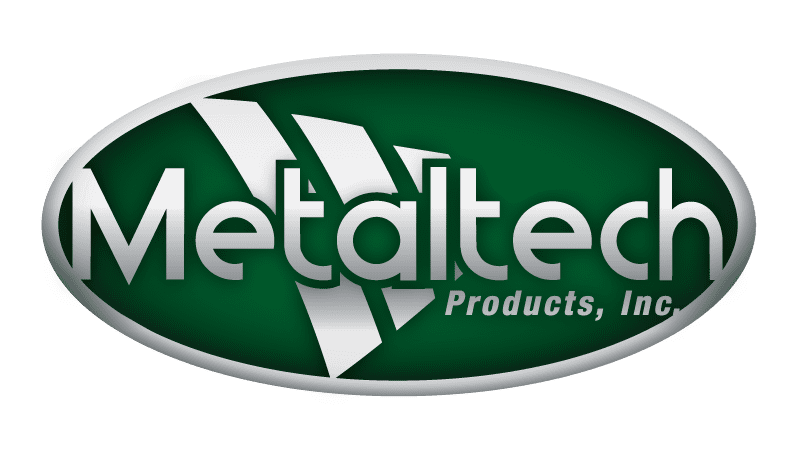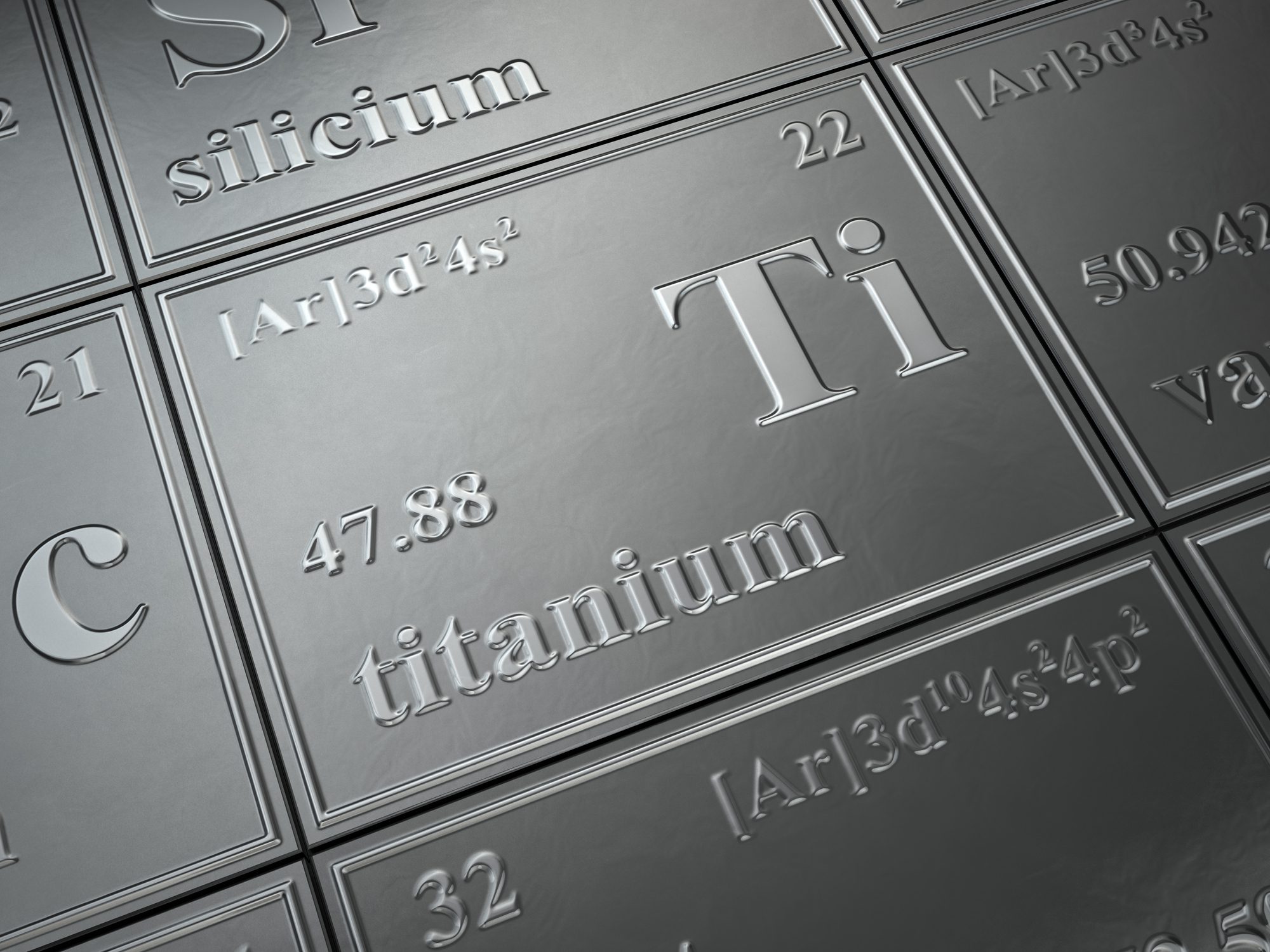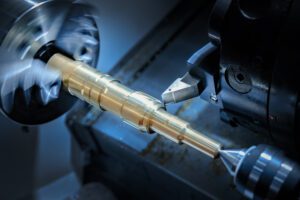From the vehicles that keep us moving to the essential products we count on, titanium enhances our lives every day.
Stronger than aluminum and lighter than steel, this unique metal has a high melting point and natural corrosion resistance. These advantages have bolstered demand for titanium components in aerospace, automotive, medical and other industries. The global market for titanium was estimated at $24.6 billion in 2022 and was expected to reach $26.07 billion in 2023.
At Metaltech, our metal fabrication experts produce titanium components for a wide range of products. Our comprehensive services run the gamut from custom design to fabrication and assembly for both large and small production runs.
Here’s an overview of what makes titanium one of the most popular materials among manufacturers today.
Jump to:
- Titanium Basics
- Benefits of Titanium
- Titanium Production Process
- Industries Driving Titanium Demand
- Request a Quote
Titanium Basics
Named after the legendary Titans of Greek mythology, titanium is element 22 on the periodic table. It is is the ninth most abundant element in the Earth’s crust.
Strong as steel but 45% lighter, this durable, silver-colored metal boasts a melting point of 3,034°F. Its corrosion resistance makes it well-suited for wet or humid environments. Other useful properties include inertness, ductility and low density.
Sources of Titanium
About 90% of the Earth’s titanium occurs in the mineral ilmenite in the form of titanium oxide. The other 10% is found embedded in the following minerals:
- Anatase
- Brookite
- Leucoxene
- Perovskite
- Rutile
- Sphene
Titanium Oxide
Titanium oxide is a bright, white, opaque material produced when ilmenite is oxidized at high temperatures. It can be ground into a fine powder for a wide variety of uses. In fact, titanium oxide is used 10 times more than titanium metal. Common applications for titanium oxide include:
- Artists’ paint
- House paint
- Enamels
- Paper
- Plastics
- Solar observatories
- Sunscreens
What is Titanium Dioxide?
Titanium dioxide is an alloy that is widely used as a whitening, brightening and opacifying agent. It is commonly added to paints to increase whiteness and reflectivity. Other products containing titanium dioxide include paint, cosmetics, plastics, rubber and sunscreen. Because it is safe for human ingestion, titanium dioxide is added to skim milk to improve opacity, as well as other food products and even toothpaste.
Is Titanium Dioxide Safe?
Titanium dioxide, a naturally occurring compound that is also manufactured synthetically, is considered safe for various common uses. It is widely used as a white pigment in many products. The safety of titanium dioxide largely depends on its particle size and the specific application. In nano-sized particles, there have been concerns regarding potential inhalation risks, and some studies have raised questions about its safety in certain forms. However, for most everyday uses, larger particle sizes of titanium dioxide are considered safe, and it has a long history of use without significant health risks. Regulatory agencies, like the FDA and the European Food Safety Authority, have established guidelines to ensure its safe use in consumer products.
Metal Alloys
Finally, titanium combines with the following metals to create a number of useful alloys:
- Aluminum
- Iron
- Molybdenum
- Nickel
- Vanadium
Benefits of Titanium
Titanium’s popularity stems from its many well-known benefits. These include strength, low density, corrosion resistance and other unique characteristics.
- Strong & lightweight: Because titanium is 45% lighter than steel, it reduces the weight of cars and other vehicles, while boosting speed and fuel efficiency.
- Heat-resistant: With a melting point of 3,034° Fahrenheit, titanium components are designed to withstand high temperatures.
- Corrosion-resistant: Unlike some metals, titanium can tolerate wet or moist conditions. That makes it a great choice for desalination equipment, as well as ships and submarines.
- Non-toxic: Because it is safe for human exposure, titanium is an excellent material for products ranging from medical devices to sports equipment.
Does Titanium Rust?
Titanium is known for its exceptional corrosion resistance, and it does not rust in the traditional sense like iron or steel. When exposed to oxygen and moisture, titanium forms a thin oxide layer on its surface, which provides a protective barrier against further oxidation and prevents the development of rust. This natural oxide layer makes titanium highly resistant to corrosion, which is one of its key advantages and why it is commonly used in applications where durability and resistance to environmental factors are crucial.
How Strong is Titanium
As mentioned, titanium is known for its exceptional strength-to-weight ratio, making it one of the strongest and lightest metals available. It has a tensile strength comparable to that of common structural steels, while being about 45% lighter. Depending on the alloy and specific treatment, titanium’s tensile strength can range from around 60,000 psi (pounds per square inch) to over 200,000 psi. This high strength, combined with its excellent corrosion resistance and biocompatibility, makes titanium a popular choice for various applications, including aerospace components, medical implants, and high-performance sports equipment.
Titanium Production Process
Step 1: Mining & Extraction
Before it can be used in manufacturing, titanium must be mined and extracted from the minerals where it occurs in nature. As noted, ilmenite is the most common source. Other sources include anatase, brookite, leucoxene, perovskite, rutile and sphene.
Step 2: Processing
After mining and extraction, titanium must be processed before it can be used in components of other products.
- Source minerals are refined under high temperatures to separate them from the titanium, leaving a porous product known as titanium sponge.
- Titanium sponge undergoes further processing to produce sheets, bars and tubes.
- Custom metal fabrication transforms titanium sheets, bars and tubes into components, which are used to build a wide range of finished products.
Step 3: Metal Fabrication
Common fabrication methods for titanium include cutting, forming, machining and welding.
For example, Metaltech uses the TruLaser 5030 2D Cutting Machine to cut titanium sheets up to 60” x 120” and up to 6 mm or 0.25 inch thick. Forming involves pressing the cut metal into a custom shape, while machining is used to give components their final shape and texture. Welding fuses separate workpieces together to create a single component.
Industries Driving Titanium Demand
Thanks to its many unique attributes, demand for titanium is projected to continue in the coming years. Here are a few examples of familiar products, both large and small, that include this versatile metal.
Aerospace & Aviation
The aerospace industry is one of the key drivers of demand for titanium. Its strength and light weight make it an ideal material for aircrafts and space vehicles, while its heat tolerance works well for jet engines. Titanium is found in a number of components including compressor blades, disks, hubs, spacers, inlet cases and seals.
Defense
With many countries increasing defense spending, titanium has a wide range of military applications. Examples include naval vessels, aircraft frames, armor plating and missiles.
Marine Industries
Due to its corrosion resistance, titanium is used in ships, submarines and other structures that are exposed to seawater. It is also found in desalination plants.
Automotive
Titanium improves the speed and efficiency of motor vehicles thanks to its strength, light weight and heat tolerance. Automakers use titanium components for exhaust systems, drive shafts, steering mechanisms, valve springs and connecting rods.
Medical Uses
Titanium’s non-toxicity and corrosion resistance lend themselves to a number of medical uses, including surgical and dental instruments. Because it fuses well with bone, titanium is commonly used to build joint replacements. Its safety profile also make it a good material for heart stents, dental implants and spinal rods for scoliosis patients. Other medical uses include prosthetics and orthopedic devices.
Additional Applications
In addition to the above examples, titanium is used in industries as diverse as electronics assembly, chemical processing, power generation and sports equipment.
Request a Quote
From custom design to assembly, Metaltech has the experience to create high quality titanium components for your products. We have the talent and the technology to take on parts of all shapes and sizes in large production runs as well as small one-off projects.
We encourage you to request a quote and contact us online if you have a question.





